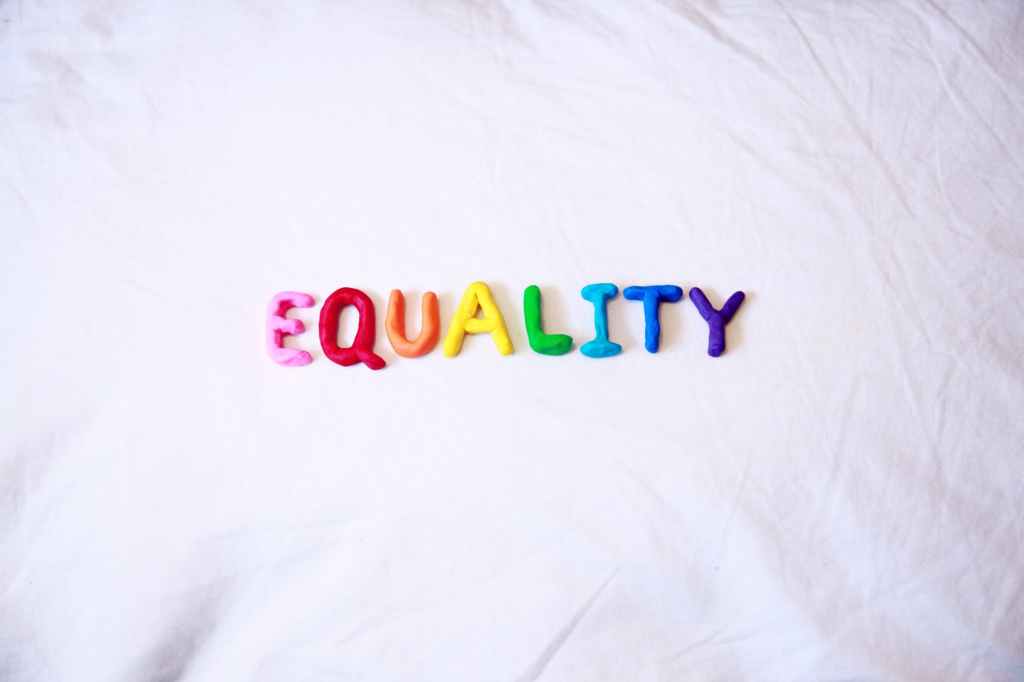By, Ryan K. Litchfield
April is not only considered Autism Awareness Month, but also, Autism Acceptance Month. What does the word “acceptance” mean? Acceptance is the concept in which the reality of a person, place, thing, or even situation, is acknowledged without judgment. Acceptance involves acknowledging something and not trying to change it or go against.
I think it’s important to acknowledge that each and every single one of us come from different backgrounds and diversities, and what we need to understand is that each and every single one of us has goals, needs, and strengths. Why is this important? Life points us in various directions. Sometimes we’re headed in the right direction, and other times, we take an unexpected turn. We all have resources, services, and supports to help guide and support us through our life journeys during the best of times and the worst of times. Someone that has trouble communicating and socializing with others and gets formally diagnosed with autism might have difficulty with accepting this new diagnosis, and it may even make it difficult for family and friends to accept an autism diagnosis with the thoughts and emotions that go through. However, I always tell communities, families, individuals, organizations, and professionals that a person will first and foremost be a person. Even though someone may have an autism diagnosis, it should never define them as a person. Yes, it’s possible someone with autism may encounter life situations, especially in areas such as relationships and social settings, that may pose a challenge in which they might need assistance and support, but let’s also embrace the hobbies, interests, and strengths that people with autism like to share with others as well. Let’s embrace people with autism that love math, music, art, engineering, and other topics. Let’s embrace people with autism for their strong attention to detail, their visual thinking, their direct communication, and many more strengths. As I have mentioned on several occasions in my life, embrace the amazing. Also, have unconditional love and support for these people.
The truth of the matter is this, acceptance takes both patience and work. While there are some individuals on the autism spectrum that state they feel accepted, there are others unfortunately that may state the opposite in that they feel they do not belong or don’t fit in. I empathize for these individuals as I have had times in my life where I have felt the same way. Why do some people on the autism spectrum feel as though they do not belong or fit in? Some people in society may not be accepting, or, may not understand the autism spectrum. That is why advocacy, education, and training is so important. We need to show communities, families, individuals, organizations, and professionals that first and foremost, people on the autism spectrum are people and have the same rights and equal opportunities as people without autism. Second, we need to acknowledge the challenges that people on the autism spectrum may have in society and do everything in our power to help and support them, and that may mean that if you experience discomfort being with someone with autism that it may mean making an effort to overcome what may be contributing to the discomfort in being with individuals on the autism spectrum. Each and every single one of us has differences, flaws, needs, strengths, and talents, and that should never be any different for someone with autism. We are all human.
I’d like to conclude the blog with this. In my experience as someone on the autism spectrum, and for other individuals, we are taught and we have to learn how to socialize and communicate with others in society and make certain that we are following etiquette when it comes to societal norms and expectations. However, some people without disabilities have not been taught etiquette when it comes to socializing and communicating with people with disabilities which also includes acknowledging what people do and why people do what they do. I do think that is what contributes to social misunderstandings and relationship issues especially for individuals on the autism spectrum. I do think for people without disabilities, they need to make the conscious effort to learn and work with utilizing proper etiquette as well as social and communication skills when relating to people with disabilities, including those with autism, and this does relate to acceptance. Finally, as I mentioned in the beginning, unconditional love is key to acceptance, and this should not just apply to people with autism, but to anyone that we interact with in society. Family and friends who support autism communities can continue to be accepting and promote unconditional love by doing the following:
1.) Put your needs to the side and acknowledge the needs of the other person
2.) Have patience when someone with autism is trying to talk or share thoughts/emotions/ideas (and utilize perspective taking)
3.) Encourage individuals with autism to pursue their dreams and goals
4.) Provide individuals with autism the support they need especially when going through tough times
5.) Be an active listener (and again, give the individual with autism time to process thoughts and emotions as well as time to respond)
6.) Be proud of moments in which individuals with autism make accomplishments and obtain progress, especially if they are milestones like getting into college, getting a job, getting married, or even owning a home or a business
7.) Tell them that you care and that they are important in your life
Diversity is what makes this world not only a beautiful place, but a better place. Acceptance for people with autism promotes a sense of belonging and unity.


Leave a comment